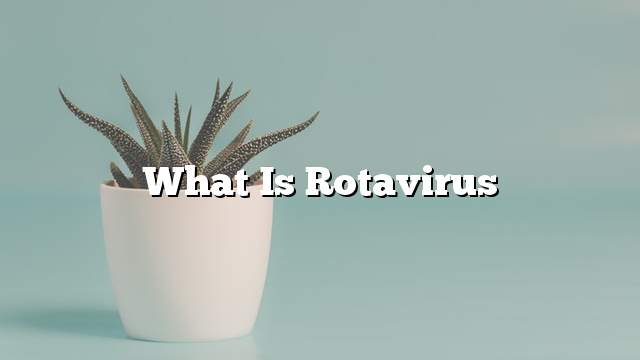It is a virus that affects the digestive system and causes diarrhea and frequent vomiting. Usually the most common category are children, especially between the ages of 6 months to 2 years, and it can also affect adults but its symptoms are less severe unless they are immune As a condition or because of the use of certain treatments such as cortisone for a long time or people who have undergone transplantation.
Symptoms:
- Frequent severe diarrhea, where the stool is like water, is very liquid but not accompanied by blood with stool.
- The most important point to prevent the transmission of the virus is to follow the means of hygiene, because the virus comes out of the body with the stool and when not washing hands well, it moves from person to person, so we advise the mother to:
- To make a change to her child away from the place of preparation and eating.
- Wash hands thoroughly after changing her baby diapers.
- Clean the place where you change the child well using a solution of water and alcohol.
- Place the soiled diapers in a separate bag and close it thoroughly before disposal.
- Detection of virus presence is done by analyzing a sample of stool.
Most of the time the symptoms disappear automatically and gradually within a few days and there is no need to resort to the doctor or enter the hospital, but it is necessary to know when parents should see the doctor, and this is mandatory in the following cases:
- If symptoms persist for more than two days.
- If the child can not eat completely because of frequent vomiting.
- If the amount of urine is discharged, this is something the mother can know in children if more than a few hours have passed and the baby’s diaper is still dry, or in older children, if the number of times they enter the bathroom is reduced for urination.
- If there are signs of dryness on children like crying without tears, dry mouth, or eyes become deep in their boulders.
- There is no specific treatment for rotavirus. The treatment of infected cases is to control the symptoms and to prevent dehydration by fluids, either intravenously or orally.
- Parents are advised to give their children a rotavirus vaccine because of the severe complications of this disease in children under the age of two, may reach the worst cases of death.
There are two kinds of rotavirus vaccine, both taken orally:
- Type 1 RV5 is given in three doses at the age of two months, four months and the last dose at the age of six months.
- Type II RV1 is given in two doses over the age of two months and four months.
Both of which are equally effective, but the vaccine series of the same type must always be completed, and not the child should be given the first dose of the following type.
